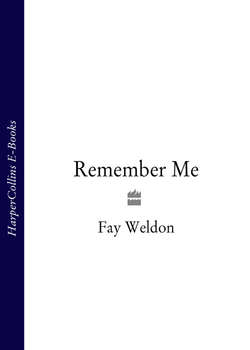Читать книгу Remember Me - Fay Weldon - Страница 7
4
ОглавлениеThe doctor wakes, late. Margot is up: he can hear the sound of breakfast. The doctor closes his eyes again. These are the moments of the day he most values, when he is most himself and least the doctor. It is in these minutes, the doctor knows, these minutes between waking and sleeping, that the events of the past, of infancy and childhood, churned to the surface by the fragmented memory of dreams, lose their haphazard nature and make some kind of pattern; effecting, with luck, some small improvement in our nature, loosening the grip of resentment, altering expectation, refocusing obsession. Thus, building on the impacted rubble of the past, we construct the delicate filaments of the present. Or so the doctor thinks.
The doctor’s breathing becomes ragged, anxious. Eavesdrop: listen.
Oh, I am the doctor. There is no one to help me. All night the insomniacs have held me in their thoughts. Now, as the minutes advance, it is the waking sick who direct their thoughts towards me. I can feel them. See, doctor, my fingernail is septic: my throat is sore; I am feverish: my eye is blacked and you, doctor, must witness my wrongs. I have cancer, VD, psittacosis, anything, everything. It is Monday, day after Sunday, family day.
I am the doctor, little father to all the world, busiest of all on Mondays, the day after Sunday.
Up gets the doctor, Philip Bailey, Margot’s husband. He puts on a suit. He has to; he is the doctor. Once he was twenty-eight inches about the waist, now, with the passage of time and the arrival of the metric system, he is ninety-eight centimetres.
The doctor is forty-five years old. He has the stocky build and freckled face of some cheerful summer child. In the last couple of years the doctor’s skin, once so soft and pliable, has seemed to toughen and harden, lines are etching deep into his flesh and will go deeper still.
As Enid’s husband Sam, the estate agent, unkindly observed at a party, Philip is like a stale French cheese, growing old before it has matured, hardening inside, cracking round the edges.
All the same, on a good day Philip looks fifteen years younger than he is. It would be unreasonable to suppose Philip stopped growing older the day he married Margot, but Margot likes to suppose it. Margot is a good wife: she allows her husband to sap her energy and youth, and tax her good nature, and feels no resentment; or thinks she does not.
Philip stretches and bends his fingers, limbering them up for the day. Margot does not like her husband’s hands.
They express something his face and body do not; some stony, hidden aspiration away from her, Margot, his wife. The doctor’s hands are stiff, knuckly and red: their palms are bloodless and lightly lined. But his patients seem to trust them, which is just as well. With these hands the doctor manipulates their joints, presses into their vital organs, searches into their orifices, their dark and secret parts, judging them ill or well, good or bad, worthy of life or deserving death. With these hands, pulling down magic from the air, the doctor writes his runes, his indecipherable prescriptions for health.
Dislike his hands at your peril. You will not get better if you do.
